




from every discipline across the university. The BA in Music comprises three tracks of study, each reflecting a different way of thinking about and experiencing music: Performance, Composition, and History, Culture, and Theory. All of our tracks provide opportunities for double majoring in Music and another field, whether in the natural sciences, pre-health disciplines, business, the social sciences, or the humanities.
Welcome to the Department of Music at Emory! Our exciting program offers a range of opportunities for engaging with music as performers, composers, and researchers.

We aim to help students express themselves with knowledge, artistry, and conviction through performance, the creation of new musical works, and the crafting of words. Above all, our program gives students the skills and understanding that will enable them to remain musically active throughout their lives. With an internationally recognized faculty of more than 60 artists and scholars, our department offers a wide variety of performance and academic opportunities. Our curriculum embraces Music majors and minors, and we welcome the participation of students
Our graduates pursue careers in diverse fields, including music, medicine, law, industry, and academics. Our low student-to-faculty ratio encourages the formation of true mentoring relationships with our instructors. We encourage our majors to pursue honors and capstone projects that include recitals, fieldwork, and archival research, as well as a combination of original research and performance study.
Please explore our website, and we hope to see you on campus!
Stephen A. Crist, PhD Chair, Department of Music Professor of Music History
3.84
The undergraduate program at Emory offers a wide array of courses and performance opportunities for Music majors, minors, and students from other disciplines as non-majors. Students who choose to major in Music work toward a Bachelor of Arts in one of three tracks:

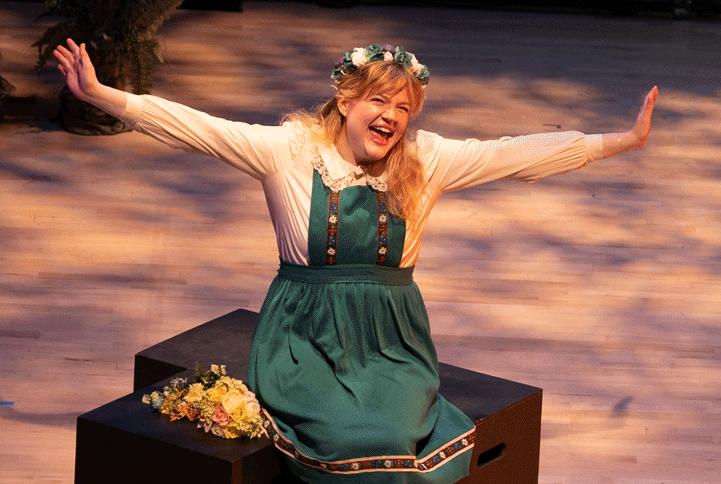
» Composition
» History, Culture, & Theory
» Performance
Music majors are eligible to apply for funding to support individual projects in each track. Our courses seek to instill a love of music and to foster the discipline music requires by providing analytical tools, critical thinking skills, creative techniques, and performance opportunities.

Please refer to music.emory.edu for a full description of course requirements for each track.
All students must be accepted to Emory College through the Office of Undergraduate Admission. Although acceptance to the Music program has no bearing on admission to Emory College, prospective students interested in the performance track may audition for the Music major during their senior year of high school or wait until they arrive on campus. Ensembles and individual instruction are open to all students by audition. An audition is not required for students interested in the Composition track or the History, Culture, and Theory track.
True to the spirit of liberal arts, Emory College encourages and supports a double major with Music and another discipline on campus. Over 90% of Music majors are double majors, studying and performing music successfully while pursuing tracks such as business, pre-law, and pre-health.
The Department of Music offers a minor in Music that requires no audition. Courses may be chosen from any of the Music Department’s course offerings. Students may focus a minor within a specific area, or they may take a broad selection of courses totaling 20 hours.
The Concentration in Arts Management is a collaboration between several arts departments in Emory College and the Goizueta Business School’s BBA Program. Participation is limited to rising junior and eligible rising senior BBA students and students of select arts majors in the College.
The Composition Track at Emory provides students the opportunity to build a portfolio of original musical work within a liberal arts environment.
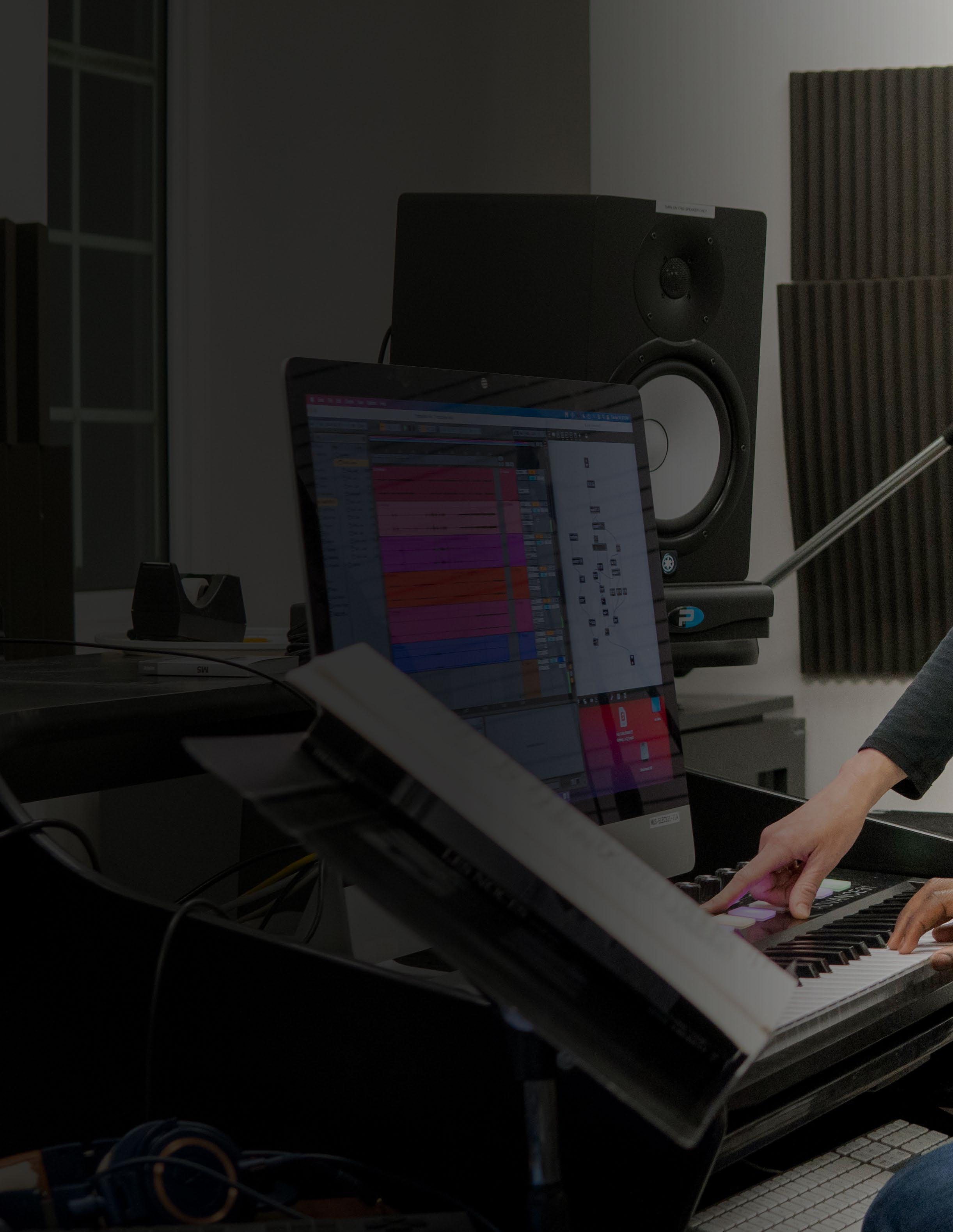
Students learn technical and analytical skills that transfer across musical genres and styles, composing for acoustic and electronic media.
They study collaboration, improvisation, and interdisciplinary artistic practices critical for 21st-century composers.
We infuse the composition coursework with numerous workshops and performance opportunities. Our annual CompFest brings national and international musicians to campus, where they work with students and present their music to the greater-Atlanta community. Students also work with the Vega String Quartet, Emory Wind Ensemble, and numerous other ensembles on campus. Each semester student composers collaborate with student performers to present their works on the Composition Showcase concert. Juniors and seniors also have the option to present a recital.
Find out more about our graduated composers who now work in the industry creating operatic, instrumental, or video game music via our website – scan the QR code.

Students may elect to pursue a major in Music that emphasizes coursework in History, Culture, & Theory.
Offerings in this area are wide-ranging, providing opportunities to explore diverse musical traditions from across times and places.
Students engage closely with scholarship, studying and developing key research methodologies and theoretical knowledge. Interdisciplinary interests are strongly encouraged, as many combine explorations in History, Culture, and Theory with work in a second field.

Although many History, Culture, and Theory track majors are also performers, this pathway features fewer performance requirements than the other tracks and does not require an audition. Students may apply for funding for fieldwork and archival research projects, and, working closely alongside our faculty, may undertake thesis projects in their final year of study.
bit.ly/emory-hct

Performance opportunities offered through the Department of Music are administered by distinct areas including orchestral studies, wind studies, jazz studies, piano studies, vocal studies, choral studies, chamber music, and world music & dance ensembles.

Students are invited to participate in one of our dynamic performing ensembles and encouraged to continue study on an instrument by taking private lessons.
Participation in an ensemble is by audition or voice placement interview. Auditions and interviews are held each year at the beginning of fall semester.
Emory Music students will receive special discounted tickets to Atlanta Symphony Orchestra performances through a generous initiative from the ASO and the Emory University Student Center.
bit.ly/emory-performance
Having celebrated its 100th Anniversary in 2022, the nationally-recognized Emory University Symphony Orchestra (EUSO) presents an annual season of dynamic performances with major works from the established orchestral repertoire and new works of the 21st century.


The EUSO also combines forces annually with Emory’s celebrated University Chorus to feature masterworks of the rich symphonic-choral tradition. In addition to collaborations with faculty and other distinguished guest artists, students have the opportunity to appear as soloists with the orchestra as winners of the annual Concerto & Aria Competition. True to the spirit of the liberal arts environment, the large scale symphony orchestra draws its membership from not only the Department of Music but from all disciplines across the campus. Largely populated by Music double majors, the orchestra warmly welcomes the participation of qualified non-majors and graduate students with appropriate backgrounds.
The EUSO is featured regularly on Atlanta’s National Public Radio affiliate with broadcast performances including Beethoven Symphony No. 9, Holst The Planets, Shostakovich Symphony No. 5 & No. 10, Tchaikovsky Symphony No. 4 & No. 6, and Philip Glass Cello Concerto No. 2 with acclaimed cellist, Matt Haimovitz.
Paul Bhasin, DMA
Donna & Marvin Schwartz
Associate Teaching Professor
Director of Orchestral Studies
Conductor, Emory Symphony Orchestra and Emory Youth Symphony Orchestra
paul.bhasin@emory.edu
emorysymphony.org
The Wind Studies program at Emory University comprises large and small ensembles composed of wind, brass, and percussion instruments.


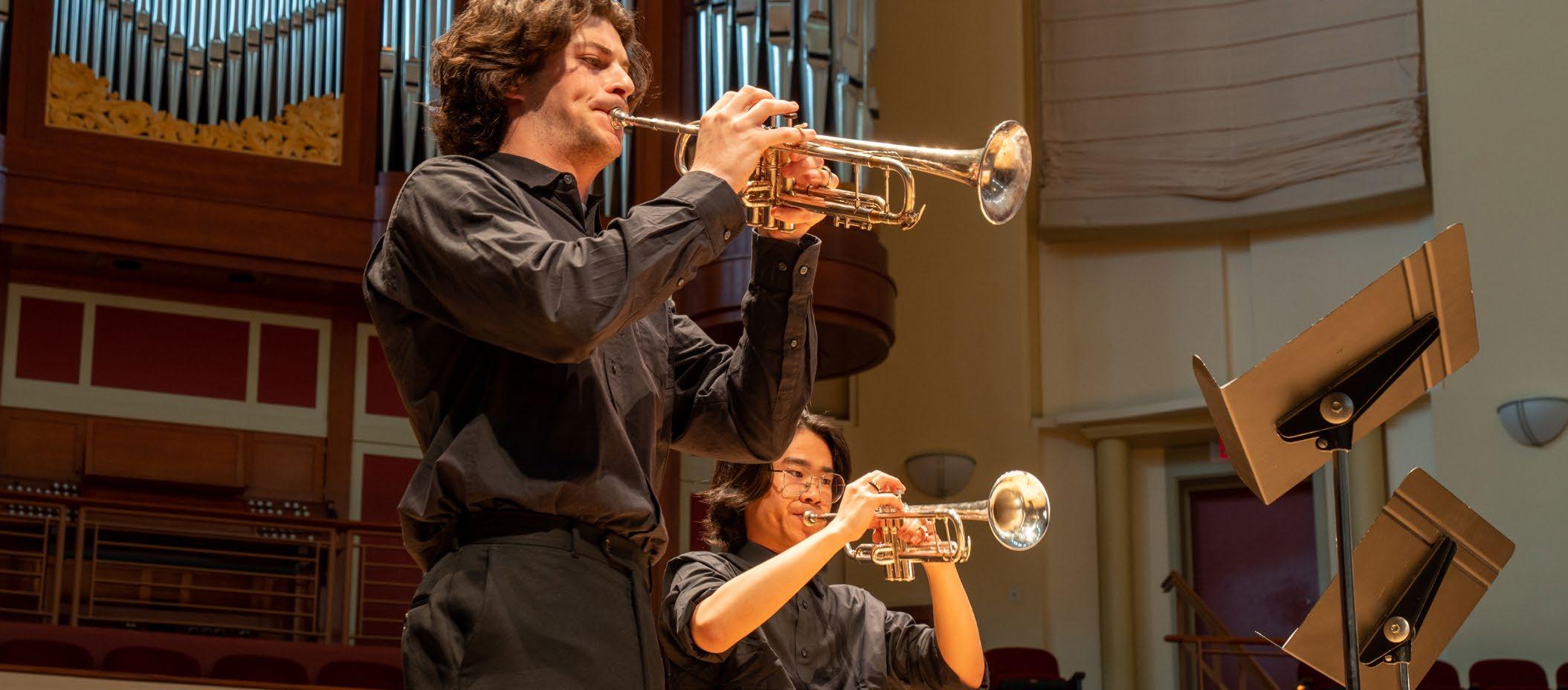
The flagship ensemble within the program is the Emory Wind Ensemble (EWE). The EWE is a nationally recognized organization dedicated to performing wind literature of the highest caliber spanning six centuries of compositional practice. A flexible instrumentation is employed with predominantly one player per part, offering students comprehensive exposure to classic and emerging repertoire following traditional wind ensemble performance practice.
The EWE has collaborated with premiere soloists including Chris Martin (Principal Trumpet, Chicago Symphony Orchestra), Stuart Stephenson (Principal Trumpet, Dallas
Symphony Orchestra), Joe Alessi (Principal Trombone, New York Philharmonic), and Grammy Award-winning solo clarinetist Richard Stoltzman, and premiered new works by celebrated composers Warren Benson, Jennifer Higdon, Libby Larsen, John Mackey, Jonathan Newman, and Joseph Schwantner. The EWE is recorded on the NAXOS label.
Paul Bhasin, DMA paul.bhasin@emory.edu
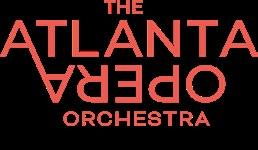
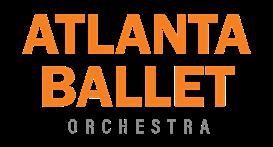
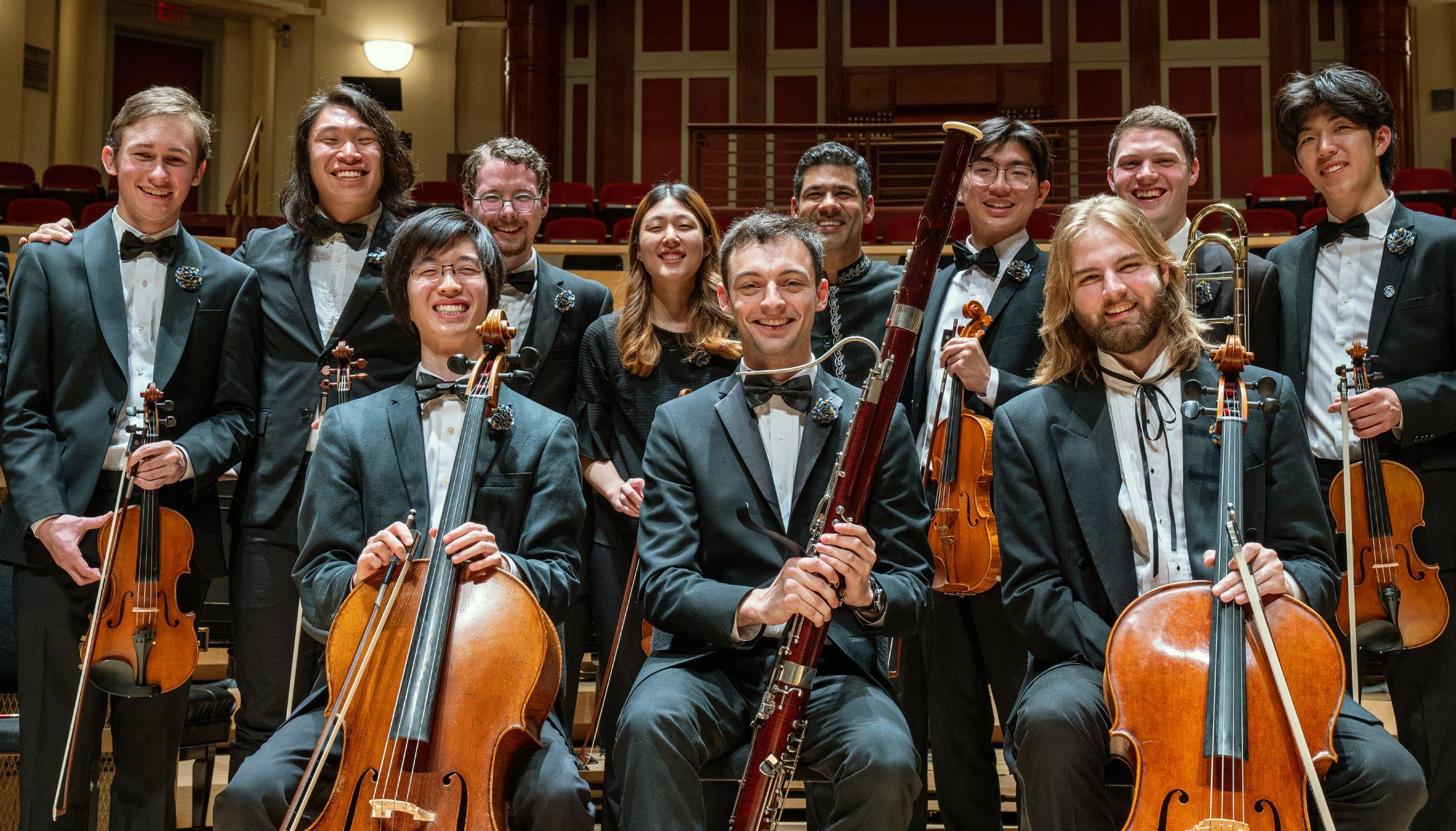
BASSOON
Anthony Georgeson
Shelly Unger, DMA
CELLO
Karen Freer
Roy Harran
Guang Wang
CLARINET
Marci Gurnow
Justin Stanley, DMA
DOUBLE BASS
Michael Kurth
EUPHONIUM
Adam Frey, DMA
FLUTE
Christina Smith
James Zellers
GUITAR
Luther Enloe, DMA
HARP
Elisabeth Remy-Johnson
HORN
Jason Eklund
OBOE
Emily Brebach
Alexandra Shatalova Prior, DMA
PERCUSSION
Scott Pollard
Mark Yancich
SAXOPHONE
Gary Paulo
TROMBONE
Ed Nicholson
Nathan Zgonc
TRUMPET
Mark Maliniak
Michael Tiscione
TUBA
Michael Moore
VIOLA
Yinzi Kong
William Paul Murphy
Joseph Skerik
VIOLIN
Justin Bruns
Jay Christy
Emily Smith
Jessica Wu
Jazz Studies at Emory is a comprehensive instrumental program, offering courses in improvisation, history, private instruction, and large & small ensemble performance.
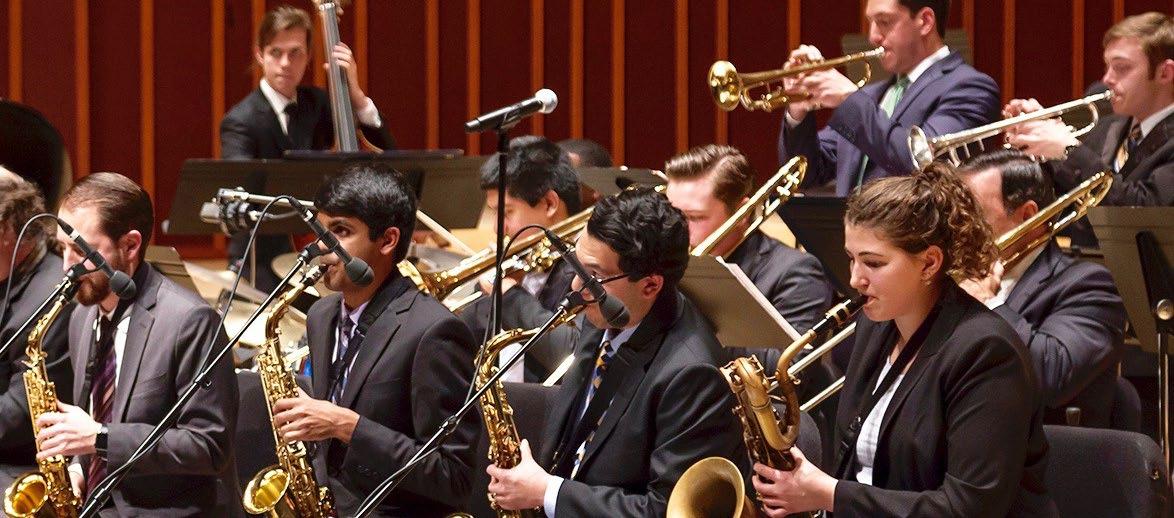
Our mission is to educate students about the rich tradition of American jazz while providing insight into the creative process through performance and analysis.
Our ensembles serve as the basis for the development of performance skills in the jazz genre, while our history, theory, and improvisation classes provide a solid foundation in the fundamental principles and literature of traditional American jazz.
Gary Motley
Professor of Performance
Director of Jazz Studies
gmotley@emory.edu
Chris Riggenbach, Bass
Dan Baraszu, Guitar
Justin Chesarek, Percussion
Randy Hunter, Saxophone
Penelope Williams, Piano/Vocals
Pianists at Emory enjoy varied opportunities to study privately, take a collaborative piano class, perform in chamber music ensembles, participate in annual master classes for renowned guest artists, enter the annual Concerto Competition, and present solo recitals.

Piano majors have won numerous top honors at competitions on the state and national levels and have been recipients of the prestigious Louis B. Sudler Award in the Arts and the William B. Dickinson Award at Emory University. Through this diverse portfolio of performing and pedagogical musical activities, Emory’s outstanding piano faculty is dedicated to helping students accomplish their musical goals.
Elena Cholakova, DMA
Associate Teaching Professor, Piano Director of Piano Studies
elena.cholakova@emory.edu
Patricia Dinkins-Matthews, DMA
Associate Teaching Professor, Piano, Music Theory, and Collaborative Piano
Jack Mitchener, DMA University Organist
Matthew Brower, DMA
Caroline Owen, DMA
Todd Qualls
Magdalena Shumanova
Hanna Song, DMA
Sonny Yoo
bit.ly/emory-piano
The Vocal Studies program includes many opportunities for both the accomplished singing artist and the novice singer.
Students may explore classical and modern repertoire in voice lessons, opera/musical theater workshops, singers’ diction classes, and performance techniques. Each of our distinguished voice teachers in the Vocal Studies program brings a wealth of experience and knowledge to the studio with active singing and teaching careers both locally and internationally. All student at Emory – Music majors and non-majors – may study with these teachers.
Annually, many students perform in StageWorks, an opera and musical theater scenes program. In these scenes, students perform the music of today and yesterday, in works encompassing classical opera and musical theater repertoire. Additionally, all Emory students have the opportunity to study singers’ diction, performance techniques, applied voice lessons, and other music classes in the department. Voice majors may perform vocal recitals during their junior and senior years. These recitals give students the opportunity to be better singers and performers, honing their skills on stage. Each year, students may sing in master classes and perform in symposia with visiting internationally-renowned artists, in addition to working with our own faculty.
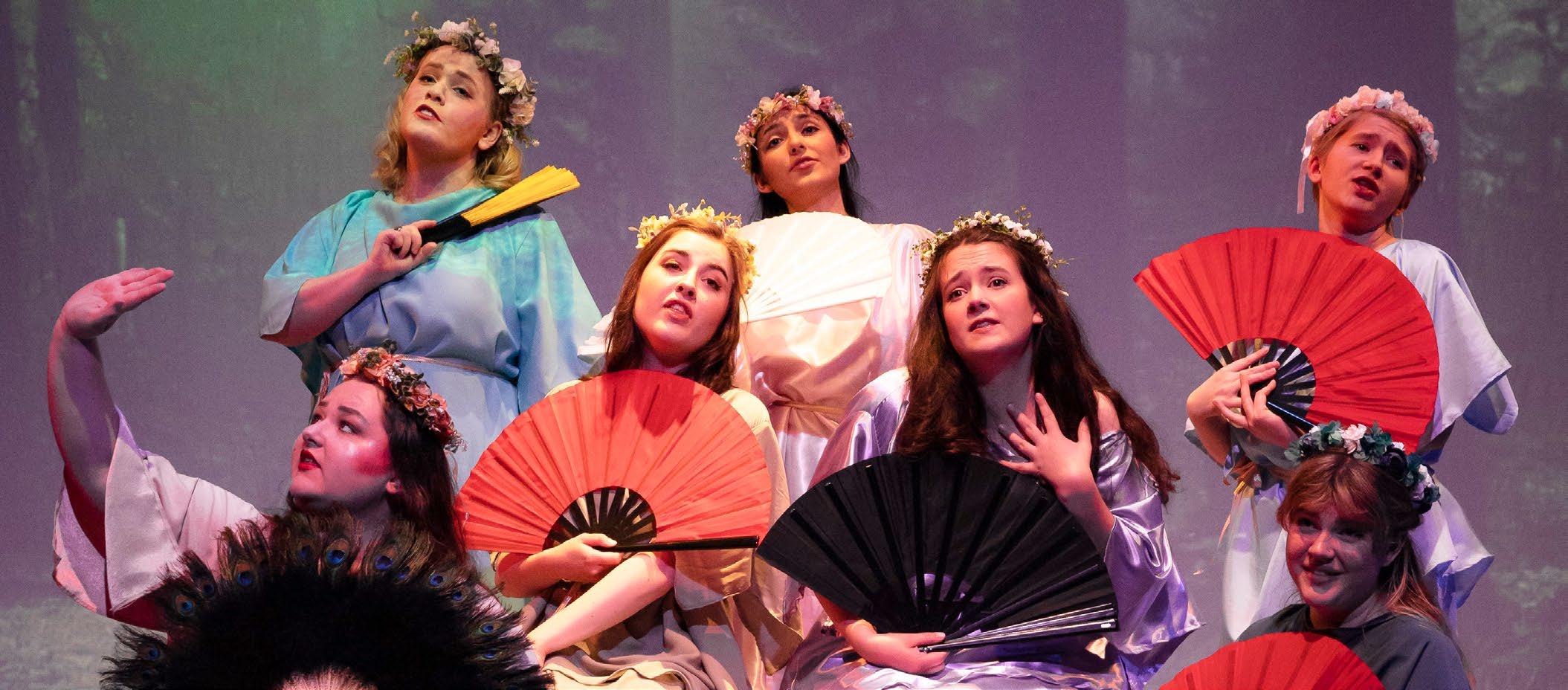
Bethany Mamola, DMA
Assistant Teaching Professor
Director of Vocal Studies
bethany.grace.mamola@emory.edu
Maria Clark
Simone McGaw Evans, DMA
Jonathan Pilkington, DMA
The Emory choirs represent long-standing traditions in the Emory community.

The ensembles sing a wide variety of repertoire, from a cappella to major works with orchestra, from motets written centuries ago to works that are newly composed. Performances include Fall and Spring Concerts, performances with the University Orchestra, and the Festival of Nine Lessons and Carols, an Atlanta tradition attended annually by more than 2500 people. The Emory Concert Choir has been featured in national American Choral Directors Association conventions and has toured
internationally. The ensembles offer students the opportunity to grow as musicians, perform at the highest caliber, and to form close-knit bonds with others in the Emory community. Choral studies opportunities include the University Chorus, a large chorus of 150 singers and the Concert Choir, a smaller chamber choir for singers with a strong high school choral background.
Emory’s Chamber Music program offers students rich and varied opportunities to rehearse and perform essential chamber literature under the regular supervision of performance faculty coaches.
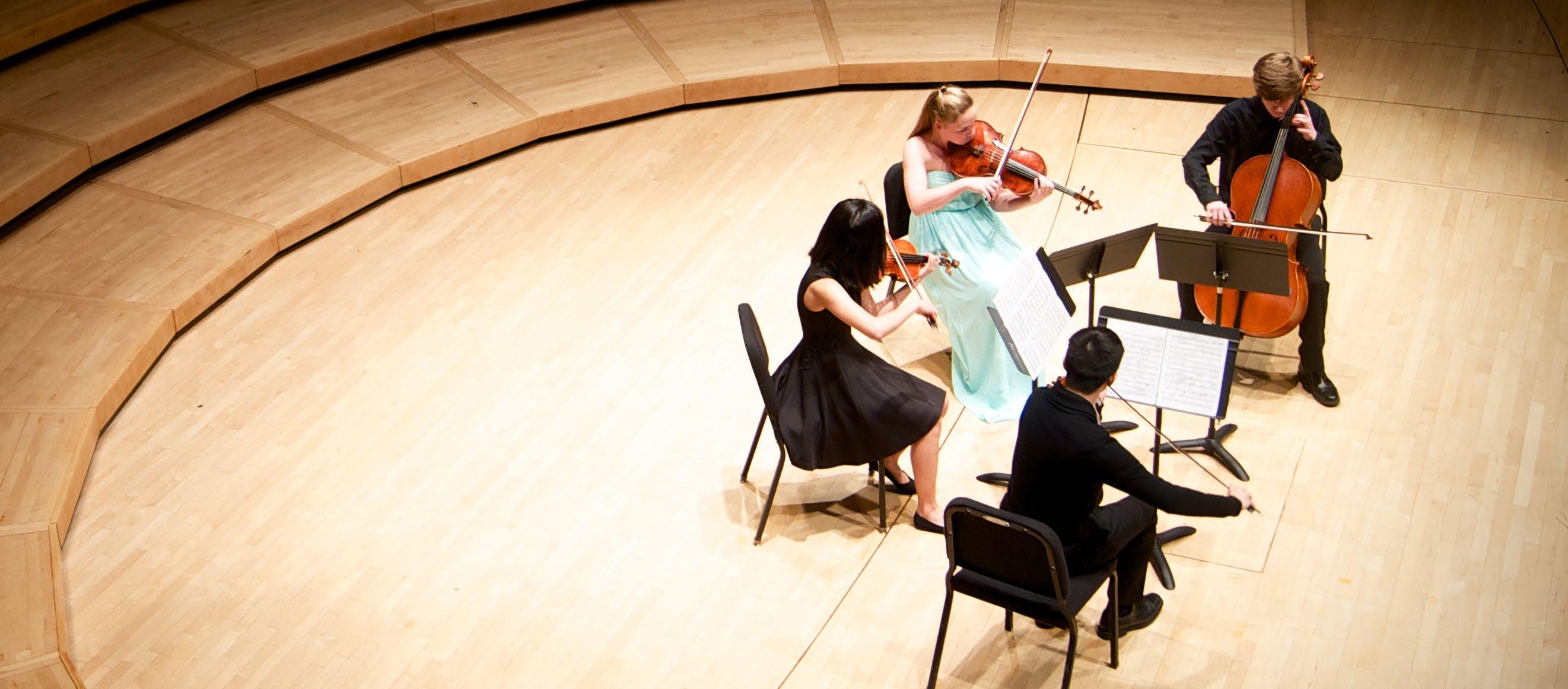
Ensembles composed of strings, winds, percussion, piano, and mixed ensembles are assigned and administered by the department. Student chamber ensembles perform several times each year in both traditional concert settings and master classes with resident ensembles and visiting guest artists.
As the Southeast’s largest and most active chamber music organization, ECMSA brings together some of Atlanta’s finest resident musicians with internationally-known performers in an annual concert series. The ECMSA’s mission is to create new generations of passionate and educated music lovers who will cherish and support chamber music.
Emory’s Chamber Music students participate in masterclasses provided by ECMSA’s resident artists, including the Vega Quartet. The ECMSA is supported by the Cherry Emerson and Madeline Katz-Doft Chamber Music Endowments.
The international award-winning Vega String Quartet is the first professional quartet to make Atlanta their home base. As the Quartet-in-Residence at Emory, they perform and teach across the curriculum and throughout the university, supporting music education in an innovative and unique way. Through these varied activities, the quartet is dedicated to developing new generations of audiences while enriching Emory’s cultural landscape.
Emily Smith, Violin
Jessica Shuang Wu, Violin
Joseph Skerik, Viola
Guang Wang, Cello
vegaquartet@emory.edu
vegaquartet.com
Students in the Department of Music may choose to deepen their experiences as performers through participation in our world music ensembles, which currently include the Emory Javanese Gamelan Ensemble and the North Indian Qawwali Ensemble.

Directed by highly knowledgeable faculty, these groups present original concerts each semester. Ensemble members from across campus are joined by faculty and community members from beyond Emory, enriching the shared activity of music-making.
While the primary goal of our world music ensembles is to provide hands-on experience learning to play instruments and sing in particular traditions, ensemble directors are also deeply committed to transmitting knowledge about the social, cultural, and historical contexts in which those traditions are situated. Moreover, numerous departmental courses engage substantively with the work of the world music ensembles. In this way, Emory students can get the best of both worlds – learning to perform while thinking deeply about the diverse meanings of performance.
Building bridges with the Atlanta community, Emory’s world music ensembles have performed at numerous local institutions, including the High Museum, Georgia Institute of Technology, and Fernbank Museum of Natural History. No audition is required, and world music ensemble courses may be taken for credit. All are welcome to participate, with or without prior experience.
Darsono Director of Gamelan Ensemble darsono@emory.edubit.ly/wme-gamelan
The Emory Department of Music is housed in the Burlington Road Building and in the state-of-the-art Donna and Marvin Schwartz Center for Performing Arts.
The Burlington Road Building (BRB) offers a range of multimedia smart classrooms, practice rooms, dedicated jazz studios, an electronic music studio, a world music instrument room, and also faculty and administrative offices.
The BRB complex includes the 240-seat Performing Arts Studio (PAS), which accommodates classes, workshops, and rehearsals for many smaller ensembles. PAS presents performances by the Department of Music and other Emory arts groups.
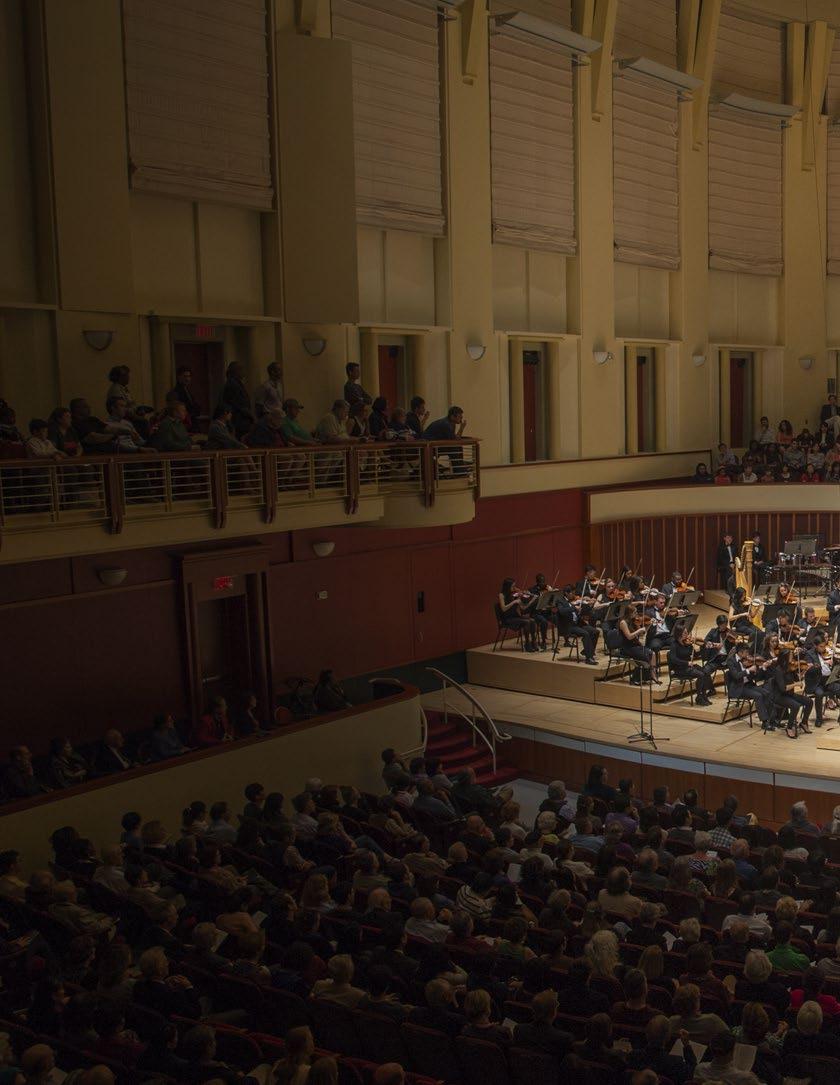
The World Music Studio, on the first floor of the Burlington Road Building, is home to the Emory Gamelan Ensemble and the North Indian Ensemble. The space also holds a collection of instruments for Chinese orchestral ensemble, Korean percussion ensemble, and Javanese and Sundanese gamelan, as well as Acehnese rapai frame drums, and South Asian tabla, sitar, and harmonium. The studio is equipped with mirrors, which are used in rehearsals by small dance ensembles.
Completed in 2003, the Schwartz Center for Performing Arts houses the renowned 825-seat Cherry Logan Emerson Concert Hall, Tharp
Rehearsal Hall, multiple chamber music and practice rooms, teaching studios, and smart classrooms. The facility also features dedicated percussion studios, a harp room, a double reed room, and performance faculty studios. Enrolled students have access to practice rooms in both locations (BRB and Schwartz). Emerson Concert Hall features a choral balcony, an orchestra pit, and the Daniel Jaeckel Opus 45 Pipe Organ, installed in 2005. The architecture is a “shoebox design” based on the Musikverein Concert Hall in Vienna, the Amsterdam Concertgebouw Concert Hall, and Boston Symphony Hall. The state-of-the-art acoustical banner system can be adjusted to make the space acoustically correct for any kind of ensemble or concert performance.
Tharp Rehearsal Hall is used for major ensemble and chamber music rehearsals and is designed to mimic the breadth and height of the concert hall and stage. Tharp features suspended wood floors for enhanced acoustical refinement, sound diffusion banners, highlevel digital audio recording equipment, and instrument storage.
The Flora Glenn Candler Concert Series and the Schwartz Artist-in-Residence Program bring internationally renowned artists to Emory University. Emory music students benefit from master classes and performance collaborations with guest soloists under these programs.

Recent graduates of Emory University’s music program have gone on to successful careers in a variety of disciplines.
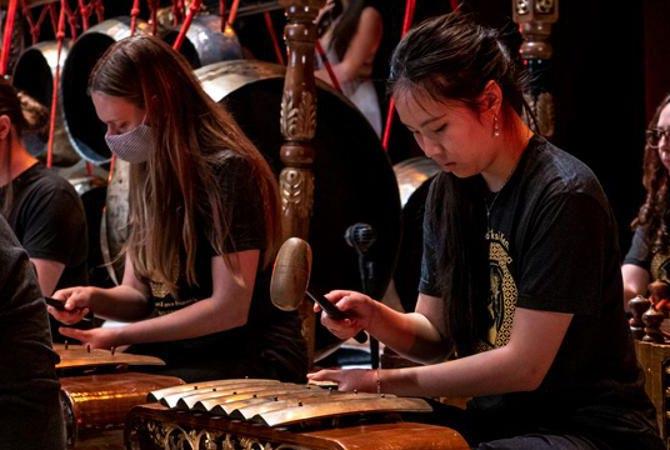
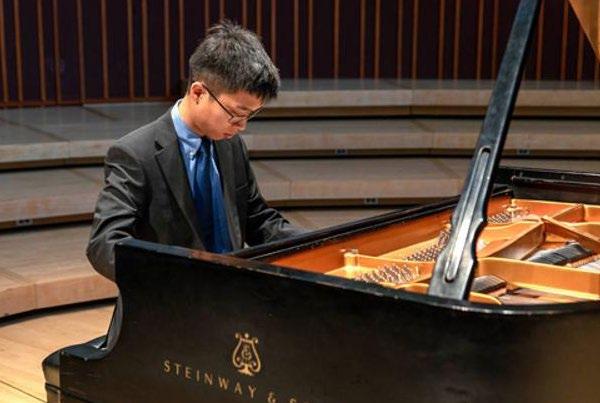

For many of our students, combining their music studies with a second major creates rich opportunities after graduation for employment or graduate study in both musical and extra-musical arenas. As a comprehensive, top-ranked research institution, Emory University offers music students seeking a second major a full slate of academic concentrations to choose from, including study in the humanities, sciences, arts, and pre-health programs.
Our graduates are successful in their careers in the arts as professional performers, arts administrators, composers, and university professors. In addition, the ability to pursue a double major in Emory College has allowed our alumni to excel in the fields of medicine, business, music education, and law.



All applicants must be accepted to Emory University through the Office of Undergraduate Admission; there is not a separate admission process via the Department of Music.
However, prospective students who audition in their senior year of high school can be preliminarily admitted to the Music major or recommended for the ensemble and chamber music programs but only pending their acceptance to Emory through the regular college admission process. Admitted students may also wait until they arrive on campus to audition. We would invite and strongly encourage all applicants with an interest in the Music major, individual lessons, or participation in the ensembles to submit RL links of their performances to the appropriate area coordinator (winds and percussion, strings, jazz, piano, or voice) in the music department when applying to Emory in the scholar, early decision, or regular decision pools. A live audition or submission of supplemental materials also enables us to provide important feedback and contribute to the admission process in the evaluation of candidates with Emory Admission.
The Department of Music offers a number of Woodruff Music Scholarships (open to incoming freshmen only) tenable for all four years of study. Woodruff Scholarships can be full tuition or full tuition + room and board (a current total value of over $280,000). These scholarship opportunities are available for candidates who demonstrate exceptional and advanced talent in music performance in addition to exemplary academics.

Emory College also has available a number of Music
Liberal Arts Scholarships in the range of $30,000 per year; these are open to all students regardless of choice of major. Students in all application pools will be invited to submit recordings or links to materials throughout the various admissions cycles.
The mission of the department is to provide a dynamic and ever-changing environment in which students, faculty, and the greater Atlanta community can encounter music through performance, creation, listening, reflection, and analysis. We fulfill our mission by offering a broad array of courses and experiences in which students make and study many different kinds of music.
